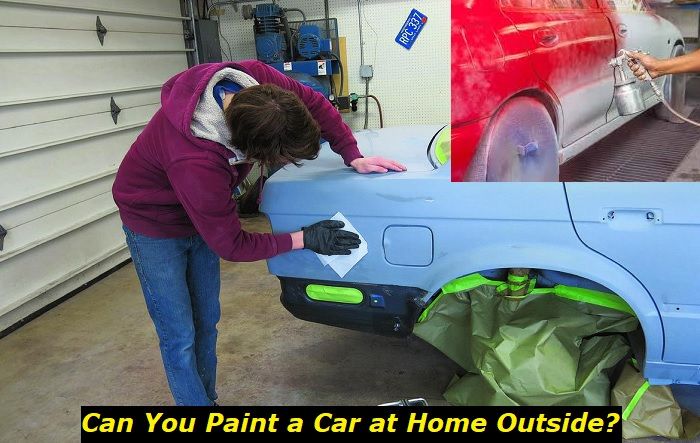Picture the following scene. You're coming home after a long day at work and after driving for quite some time, you eventually reach your house. You decide to back up your driveway and you're in for a big surprise. Your engine suddenly stalls.
Engine stalling highlights
- Level of importance:High
- Commonreasons:Compression, electrical issues, fuel or air supply problems
- DIY inspection:Possible but complicated
- DIY repair:Impossible
- Price for repair:$250 - $1,500
- Can you drive?Very carefully
- Ways to fix:It's usually professional repaironlyunless the problem is with the air filter or some other part that's easy to replace.

What vehicles can have this problem?
The short and simple answer to this question would be any of them. The make and model are not always that relevant, as many of them use gearboxes made by the same manufacturers. The company that built your car only alters the default settings on the gearbox that is given to them.
This isn't always the case, but there's a high probability that it is. However, this time we're going to stick to pick-up trucks made by Chevrolet and go a bit more in-depth about some of the more specific common faults that can be encountered.
It is important noting that throughout the years, there have been many different gearbox models used and also many different engines (you will see why this is important later) used, so some of the issues might not apply to your vehicle.
If you don't know exactly what kind of engine or gearbox you have, it is always worth trying to use a VIN decoder that could tell you pretty much everything about your truck's factory equipment. Also, they both usually have codes stamped on them and you could try checking them as well since they might have been swapped by previous owners.
Also, pretty much any shop specialized in gearbox servicing would probably be able to tell you more information about your problem, so it's worth paying them a visit as well if you find troubleshooting too much for you.
This can be the case since gearboxes can be a bit complicated and you definitely shouldn't mess with them if you don't know what you're doing. Brand-new ones can be very expensive, regardless of whether them being automatic or manual.
What could cause issues?
- Low Transmission Fluid
As you might know, gearboxes are filled with a special transmission fluid, which is often overlooked by most drivers out there. A strange leak that seems to be coming from the gearbox? If that's the case, it's definitely time to check your fluid level.
If the transmission oil doesn't get to all the places, it should, not only will it put more wear on all its components, but it will also make the gearbox not perform as it should, and you might also encounter problems such as jerky shifting between gears, strange noises, or the engine stalling whenever engaging a certain gear.
- Dirty/Never Serviced Transmission Fluid
Every fluid that is in your car will start losing its properties with time and usage, and that is definitely the case with the transmission fluid as well. When was the last time you serviced your transmission?
If you can't remember, then it's definitely the time to do so. While manufacturers will often tell you that the transmission has lifetime fluid in them, it's important to know what this actually means. They refer to the average lifetime of the car, so anywhere between 8 and 12 years of age.
If your truck has already passed this age and it has quite a lot of mileage, it's time to change the oil. Also, don't forget that there's a filter there as well and you should change it too. Filling quantities and the required fluid and filter are usually found in the owner's manual, but you can also find this information on the internet quite easily. Shops will usually know what works with your transmission.
- Dirty/Faulty Idle Air Control Valve (IAC)
This seems to affect quite a lot of trucks, so it's worth checking. This component controls the amount of air that goes into your engine when idling. With time, it can get dirty or even blocked and that would eventually lead to your engine not getting enough air in order to work.
- Vacuum Leaks
Hoses get brittle with age, so we would advise you to check every single vacuum line your engine has. They are important to keep the right air-fuel ratio that delivers the best power. Should they leak air, your engine might shut off whenever you put your truck in gear.
- Bad Ground Points
This seems to be another common fault on these vehicles, so always check that every ground terminal is properly connected and is not corroded. These can trigger all sorts of error codes and make the engine or transmission act very strange.
- Faulty Alternator
An alternator that is not working as it should causes engine or transmission running issues. Any electrical component, such as the ECU (engine control unit) or TCU (transmission control unit) will definitely be affected if there isn't enough charge coming from the alternator.
- Clogged Fuel Filter
Yes, something as simple as a cheap fuel filter can cause your engine to die when putting your truck in gear. If it hasn't been changed for a very long period of time it can get clogged and therefore won't allow enough fuel to flow through it and reach the engine, thus not only reducing its power but also causing it to stall when selecting a gear.
- Bad Fuel Pump
With age, fuel pumps can get a bit tired, so it might be the case that the one in your truck doesn't deliver enough fuel pressure to keep the engine running in certain situations.
- Bad Throttle Position Sensor (TPS)
Faulty throttle position sensors could send wrong data to the ECU and there might not be enough power for the engine to work in certain gears. Also, a bad TPS could cause the ECU to not activate the IAC at very low speeds and that might be why your engine stalls in reverse.
- Bad Transmission Selector Sensor
This sensor tells the gearbox what gear to select and if it's faulty, you might not be able to engage reverse. While this may not necessarily cause your engine to stall, it's definitely worth checking to see if it's working properly.
- Bad Torque Converter
In this case, things can get quite expensive. The torque converter is there to pressurize the transmission fluid, in order to give enough force to shift through the gears. If this part fails, there won't be enough power at idle or at low speeds and so, the engine could suddenly shut off, when selecting either drive or reverse.
Are manual gearboxes affected?
When it comes to manual gearboxes, things are a little bit less complicated to troubleshoot, since there's way less electronic involved. In this case, if your engine stalls, the problem is usually another component and not the gearbox or the clutch, so you could try checking the other non-gearbox-related components mentioned above.
Usually, what happens with manual transmissions, is that you are not able to engage a certain gear, such as reverse, but engine stalling. It's safe to say that it's not really the case.
How to fix the problem?
After visually checking components such as vacuum lines, cleaning the IAC, and checking the fluid level and everything seems fine, we'd advise you to try a diagnostic if your Chevy allows this.
It might tell you about the errors present within either your engine or your gearbox and that might give you a lead into what's actually wrong with it. If you don't feel comfortable messing with any of the stuff we've mentioned, it's always a good idea to visit a shop that specializes in transmissions. It's more than likely that they have already seen many trucks with your issue and they probably know what could cause it.
Should you need a new torque converter, TCU, or even an entire transmission, things might get quite expensive, so prepare yourself and think well about whether it's worth fixing everything or if you're better off just buying another truck.
Conclusion
When it comes to transmissions, things can get a bit tricky, but they are not always expensive to fix. Always check and double-check everything you can at home because you might end up spending big amounts of money and still end up with the same issue, which is actually caused by something a lot simpler and cheaper.
Even if a certain component seems to have no actual link with the transmission, such as the fuel filter, it's always good practice to ask yourself when was the last time you replaced it.
About the authors
The CarAraC research team is composed of seasoned auto mechanics and automotive industry professionals, including individuals with advanced degrees and certifications in their field. Our team members boast prestigious credentials, reflecting their extensive knowledge and skills. These qualifications include: IMI: Institute of the Motor Industry, ASE-Certified Master Automobile Technicians; Coventry University, Graduate of MA in Automotive Journalism; Politecnico di Torino, Italy, MS Automotive Engineering; Ss. Cyril and Methodius University in Skopje, Mechanical University in Skopje; TOC Automotive College; DHA Suffa University, Department of Mechanical Engineering






Add comment